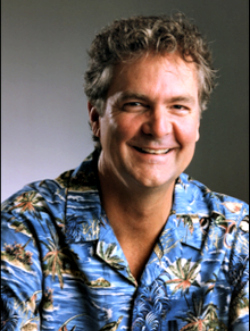Campus News
Conference to explore questions of precision medicine, bio-data, and ethics
Leaders in genomics, health and informatics, civil rights, bioethics, indigenous rights, science policy, and the social study of health and medicine will gather at UC Santa Cruz this week for a workshop that aims to broaden the public discussion of big data and health.


Leaders in genomics, health and informatics, civil rights, bioethics, indigenous rights, science policy, and the social study of health and medicine will gather at UC Santa Cruz this week for a workshop that aims to broaden the public discussion of big data and health.
Attendees of “Just Data? Justice, Knowledge and Care in an Age of Precision Medicine,” organized by the UCSC Science and Justice Research Center, plan to focus on ethical and legal questions about privacy and informed consent and also care, trust, and knowledge in an age of biomedical data. The anticipated outcome is a report that will seek to help set an agenda for national policies regarding big bio-data and precision medicine that make questions of social justice central to the discussions.
The foundation of precision medicine is based on using massive amounts of data—deeply personal data at the genomic level—to revolutionize healthcare with the goal of curing cancer and other diseases. However, ethical questions arise over who owns the data and what can be done with it.
Precision medicine and bio-data also promise to play a central role in a fundamental transformation of institutions, one in which digitized data move to the heart of decision-making practices—in science, law, policing, and medicine.
This is happening, conference organizers say, at a time when social inequalities are the widest in U.S. history and the premium on trust relationships is at its highest.
Kicking off the session Wednesday afternoon will be David Haussler, professor of biomolecular engineering and director of the UCSC Genomics Institute, and Jenny Reardon, professor of sociology and director of the Science and Justice Research Center.
Some of the questions participants will tackle are:
- What happens to trust in medicine and patient outcomes when data portals, not doctors, deliver health information, and when health data is used to understand one’s risk for disease today, but used in lawsuits or a national security investigations tomorrow?
- What happens to our ability to think about disease, care for patients, and address public health challenges when access to data expands exponentially for some (and not others)?
- What do we need to understand and what should we do if we want better knowledge, better care and more just, equitable worlds to be the guiding goals of open, big data approaches to health?
The conference is co-sponsored by the National Science Foundation, the National Human Genome Research Institute of the National Institutes of Health, the UCSC Genomics Institute, and the UC North Bioethics Collaboratory, a collaboration of University of California bioethics researchers.